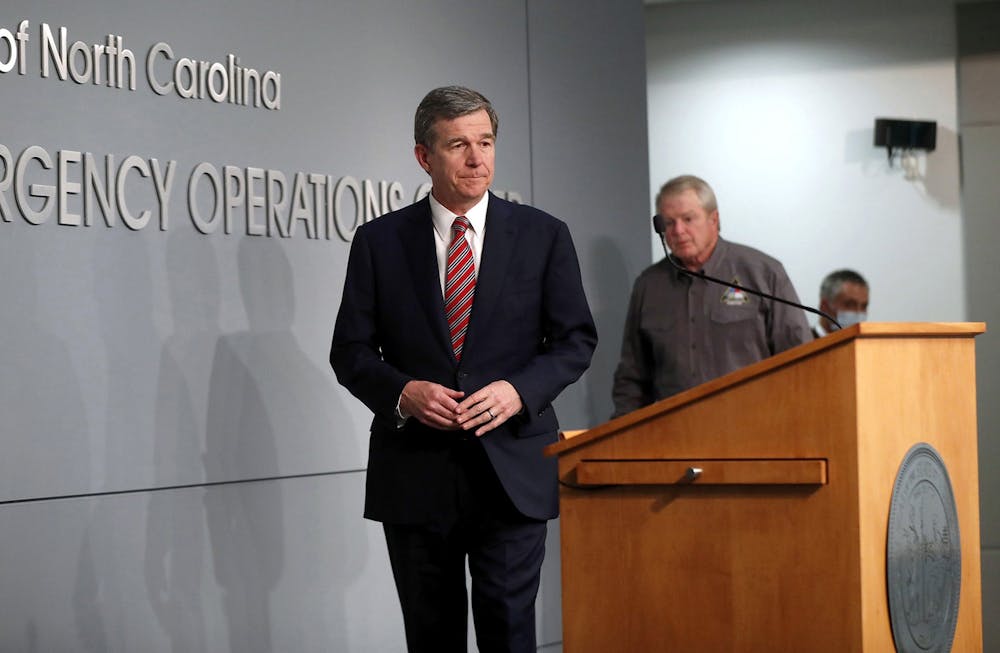North Carolina Gov. Roy Cooper announced at a press conference on Wednesday that the modified stay-at-home order in the state will be lifted on Friday at 5 p.m.
The order, which was originally put in place after North Carolina saw an influx of COVID-19 cases after the Thanksgiving and Christmas holidays, is being lifted after the state has seen a downward trend in cases for the last few months, according to Cooper.
“Fewer people are getting sick, and fewer are needing a hospital,” Cooper said. “All the metrics we measure continue to stabilize.”
Restrictions being lifted include a halt to the 10 p.m. state curfew, the outdoor gathering limit being increased from 25 to 50 and businesses being allowed to operate at 50% capacity. Alcohol-serving businesses can remain open till 11 p.m.
Cooper said while other restrictions are being eased, the mandatory mask mandate will still be in effect.
“As more people gather together, it will be more important than ever to social distance,” Cooper said. “These proven safety protocols are vital, as this virus is still here, and infecting people every day.”
This announcement comes on the day that Phase 3 of the North Carolina COVID-19 vaccination distribution plan begins, which will allow teachers and essential frontline workers to be vaccinated.
More than half the people 65 and older in North Carolina have been vaccinated, according to Cooper.
In Alamance County, over 32,000 residents have been vaccinated with over 11,000 residents receiving their second dose.
After reports that the Johnson & Johnson COVID-19 vaccine is on its way to being approved by the U.S. Food and Drug Administration, Secretary of the North Carolina Department of Health and Human Services Mandy Cohen said the state was working closely with the federal government to get more vaccines for North Carolina residents.
“We have been talking with our federal partners, and they will give out 2 million doses [in total],” Cohen said. “We have been getting 3% of that total pot … so we think it’s about 50 to 60 thousand doses that could be coming here.”
Cohen also discussed the state’s monitoring of COVID-19 variants and said North Carolina data collection is staying on top of the types of coronavirus strains in the state.
“We are sending a sizable number of samples to the CDC,” Cohen said. “As we identify those variants by genetic sequence, we do report those publicly.”


